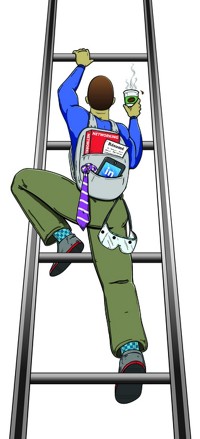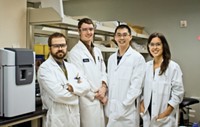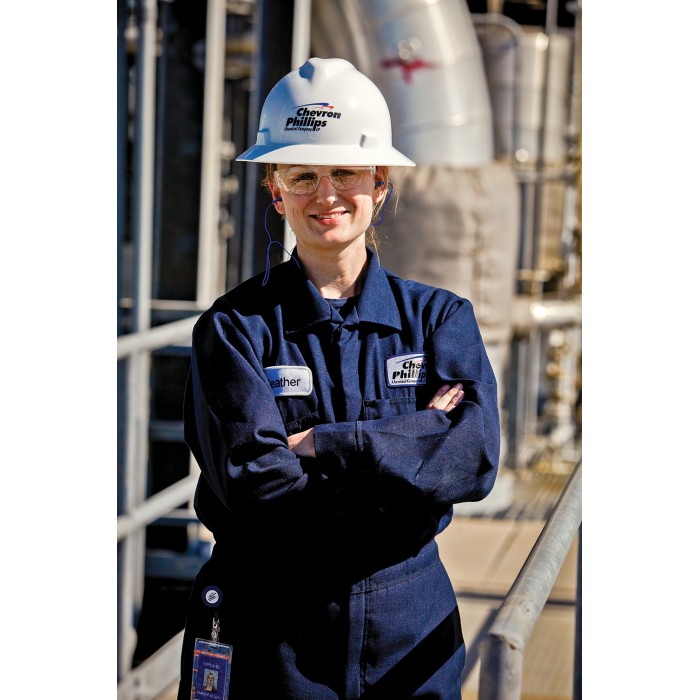Advertisement
Grab your lab coat. Let's get started
Welcome!
Welcome!
Create an account below to get 6 C&EN articles per month, receive newsletters and more - all free.
It seems this is your first time logging in online. Please enter the following information to continue.
As an ACS member you automatically get access to this site. All we need is few more details to create your reading experience.
Not you? Sign in with a different account.
Not you? Sign in with a different account.
ERROR 1
ERROR 1
ERROR 2
ERROR 2
ERROR 2
ERROR 2
ERROR 2
Password and Confirm password must match.
If you have an ACS member number, please enter it here so we can link this account to your membership. (optional)
ERROR 2
ACS values your privacy. By submitting your information, you are gaining access to C&EN and subscribing to our weekly newsletter. We use the information you provide to make your reading experience better, and we will never sell your data to third party members.
Employment
New Bachelor-Level Chemists Face Grim Job Market
Industrial experience, leadership roles help some grads land that first position
by Susan J. Ainsworth
January 28, 2013
| A version of this story appeared in
Volume 91, Issue 4

The inhospitable employment climate has not spared anyone in the chemical sciences, but many who have recently earned a bachelor’s degree may be in for a particularly tough fight.
This is the situation that Scott—who asked that his last name not be used—found himself in after graduating with a B.A. in chemistry from a liberal arts school in upstate New York in May 2011. Within six months of searching, he landed a process development chemist position at a small Columbus, Ohio, company only to lose it less than a year later. Then, disenchanted after spending months unsuccessfully searching for another chemistry position, he decided to take his career in an entirely different direction. His skills in Web design recently netted him a position in search engine optimization, and he plans to attend programming school beginning in April.
Like Scott, many other fledgling B.A. and B.S. chemical professionals have been struggling to find jobs in their chosen discipline. In the most recent American Chemical Society survey of new graduates in chemistry and related fields, in 2011, 14% of recent bachelor’s degree recipients reported that they didn’t have a job but were seeking one, up from 12% in 2010 (C&EN, June 4, 2012, page 36). In contrast, 9% of new Ph.D. grads said they were seeking employment in 2011, up from 6% in 2010.
Results of the 2012 new-graduates survey won’t be available until April of this year. In the meantime, a sampling of career services coordinators at universities across the U.S. reports that the employment landscape for new B.S. and B.A. chemists, biochemists, and chemical engineers hasn’t changed much from last year.
For B.S. graduates in the chemical sciences, the job market “appears to be even a little more challenging this year,” observes O. Ray Angle, director of University Career Services at the University of North Carolina, Chapel Hill.
Among its 2012 B.S. grads in chemistry and biochemistry, 33% found jobs, 50% went on to grad school, and 17% are still seeking jobs and remain unemployed, Angle notes. In comparison, 43% of its 2011 grads found jobs, 47% went on to grad school, and only 10% were seeking jobs.
At the University of Illinois, Urbana-Champaign (UIUC), the employment situation for B.S. grads in the chemical sciences “is only slightly better than last year,” says Patricia Simpson, director of academic advising and career counseling and placement for UIUC’s School of Chemical Sciences.
“Although many of our candidates are still struggling, our strongest students are getting multiple offers—and probably more offers than they did last year,” Simpson says. Another positive sign: The number of companies recruiting on campus continues to rise each year, after the big drop in recruiting that occurred in 2008, she adds.

Recruiting has also been picking up momentum at Texas A&M University (A&M). “We are really seeing an overall improvement in the job market for those with undergraduate degrees in chemistry, and even more so for those with B.S. degrees in chemical engineering,” says Paula B. Moses, director of employment services at A&M’s Career Center. She attributes the uptick in employment prospects mainly to the strength of the oil and gas industry in Texas. Energy, she adds, is one of the hottest sectors for jobs for chemical professionals.
During 2012, two-thirds of companies recruiting chemistry majors at A&M’s on-campus science career fair were seeking those with bachelor’s degrees, while one-third of companies were looking to hire Ph.D.s, according to Marilyn S. Yeager, senior life sciences career coordinator at the university’s Career Center. “It’s clear that there are at least some new opportunities for bachelor’s degree grads in the chemical sciences currently.”
However, even as an incremental number of jobs open for new B.S. grads, competition for those opportunities remains fierce. To stand out in a sea of applicants, candidates need to cultivate skills and experience to make their résumés sparkle.
“A top criterion that recruiters value in candidates is relevant experience gained through internships or co-ops,” Yeager says. “In addition, they want candidates who have a combination of strong academic preparation at a major institution and effective writing and interpersonal communication skills, which allow them to work well with others on teams,” she adds. “We see more employers utilizing personality assessments in the recruiting process” to be sure that candidates fit within the company culture, Yeager says.
Recruiters also covet students who have exhibited “thought leadership,” which involves more than just serving as president of an on-campus organization, Simpson says. Instead, such students “have taken ownership of a project or come up with a new solution to a problem,” she explains.

For Erica Schepp, having related research and work experience may have been the key to landing her job as a product development engineer at Ineos’ Battleground Manufacturing Complex near La Porte, Texas, last June.
Schepp, who earned a B.S. in chemistry at A&M in May 2012, had met an Ineos recruiter at an on-campus chemistry career fair mixer early in her senior year. Although the recruiter had said that the company was hiring only Ph.D. chemists at the time, Schepp presented her résumé and, only a few months later, was offered her current position.
As highlighted on her résumé, Schepp had conducted research with a polymer group at A&M and held a summer internship doing research and compositional analysis for production of dermal care products at Rhodia’s plant in Charleston, S.C.
With that hands-on experience, Schepp has been able to hit the ground running in her current job. Handling her own high-density polyethylene blow-molding project, she is able to “directly contribute to the company’s success,” she says.

Work experience was also a critical element in Josh Malone’s strategy for landing a job just before graduating with a B.S. in biochemistry from the University of Oklahoma last month. He is now a laboratory technician for Oklahoma City-based Caisson Biotech, which has developed a heparosan-polymer-based drug delivery system, HEPtune, designed to improve the performance of many drug compounds.
Malone had gained experience in the biotech field during his most recent summer job—which involved supporting packaging and quality-assurance functions during production for a Phase II drug to treat ulcerative colitis—at Oklahoma City-based Altheus Therapeutics. In addition, that job helped him forge a key contact in his search for a permanent position after graduation; it was the vice president of Altheus who recommended him for the job at Caisson.
Working under the guidance of a Ph.D., Malone is involved in research and development, optimization, and production of heparosan, a naturally occurring sugar polymer that Caisson is commercializing for use in a drug delivery system.
Throughout her college career, Alia Khan has been looking for ways to bolster her résumé in anticipation of her job search. That effort has paid off. She recently landed a position as a reservoir engineer at ExxonMobil Development, which she will start shortly after graduating from UIUC in May with a B.S. in chemical engineering.
Khan gained research experience during summers, joining UIUC’s Engineers Without Borders project, designing and testing sand filtration systems for water purification. She also gained industrial experience through summer internships doing analytical R&D work at Celanese and process design work at Dow Corning.
To further enhance her marketability, Khan worked her way up to become the current president of UIUC’s student chapter of the American Institute of Chemical Engineers. In addition, she has held leadership positions in UIUC’s chapter of Omega Chi Epsilon, the chemical engineering honor society, and the university’s Engineering Council, which manages all other on-campus engineering student organizations. She is also currently working as a lead engineering learning assistant, teaching an entry-level course and coordinating other student teachers. In that role, she has successfully overhauled the course to include an interactive project in which students build a miniature chemical plant and give a poster presentation.
Khan attended career fairs and corporate socials during her job search, ultimately finding the job with ExxonMobil by networking with former UIUC students who had become employees at the company, she says.
Ian Lake also improved his employment prospects by seeking ways to differentiate himself from other job seekers. While in school, Lake augmented his chemistry studies by earning a minor in business. He also spent a semester in Rome. “These experiences helped me to relate to and connect with a diverse group of people and learn to adjust to different situations—something that really helped me to stand out as a candidate in my job search.”
A month after graduating in May 2012 with a B.S. in chemistry from UIUC, he landed a job as a consultant at ChemStaff, a small engineering consulting company that serves nuclear power companies across the U.S. In his job, Lake has been installing new laboratory software at several nuclear sites across the Midwest and conducting assessments at plants for the company’s environmental projects. “I have been surprised by the amount of responsibility I have been given this early in my career,” he says.

For new grads like Lake, international work or study experiences can provide an edge in finding a job in the increasingly global chemical or pharmaceutical industries. That has been true for Lydia Yeung, who graduated with a B.A. in chemistry from the College of Wooster in Ohio in May 2011. After a brief but frustrating postgraduation job search, she decided to spend a year teaching English in China. The experience, she reasoned, would allow her to travel and learn Chinese—something she had always wanted to do.
As Yeung’s teaching stint ended, the Hawaii native decided to relocate to San Francisco and enlist the help of staffing firm Aerotek in her job search. Much to her surprise, within just a few weeks she was placed in a contract-to-hire chemist position at Biosearch Technologies, a Novato, Calif., biotech firm. As part of the chemical production team, she synthesizes base materials and products used for genetic research and related applications.
Yeung says her stint in China was attractive to her recruiter. In addition, he was impressed with the research experience she gained through Wooster’s independent study thesis program. According to the recruiter, these experiences demonstrated Yeung’s willingness to take on new challenges and seek opportunities to develop new skills, she says.
At the same time, Yeung feels that her decision to relocate to San Francisco—where she knew there were “more cool start-ups” and more science jobs—significantly helped her chances of finding a position.
Katrina Thistle makes the same point from the opposite coast of the U.S. After earning a B.S. in biochemistry from Simmons College in 2012, she decided to stay in the Boston area, where jobs in her field are relatively plentiful. After interviewing for a number of jobs over the summer, she landed a position as a research technician at Dana-Farber Cancer Institute. In this role, which involves mostly wet-lab techniques, she is researching therapeutic modalities for brain cancer.

Even while many freshly minted bachelor-level chemical professionals are finding stimulating jobs, many of their peers—grads of big universities as well as small colleges—are still trying to launch their careers.
“Outside of going to work for temp placement agencies, it has been hard for students to find jobs,” observes Paul L. Edmiston, a professor of chemistry at the College of Wooster. Although some recent graduates such as Yeung have landed interesting positions, several others have given up on their search for challenging work and opted to continue their education instead, he says.
Gretchen E. Hofmeister, an associate professor of chemistry at Carleton College in Northfield, Minn., reports that some of the school’s recent B.A. chemistry graduates are making that choice.
After graduating from Carleton with a B.A. in June 2011, S. Grant Bowen found that the chemical industry jobs for which he was qualified—mostly research assistant positions—didn’t particularly appeal to him. He returned to his hometown of Boston to work briefly in sales at a brewery, and later at an operations consulting company, but then decided to redirect his career path. He enrolled at Suffolk University Law School last fall. When he finishes in 2015, he says, “the job search will start all over again.”
Advertisement
Likewise, Atalie Hayes—who earned a B.S. in chemistry from Westminster College in New Wilmington, Pa., in 2011—is also taking her career in a new direction. After spending eight months “applying for countless openings in a variety of industries,” she faced the same outcome: “No response or a polite rejection,” she says. Lack of experience was her biggest flaw, she says.
Frustrated, she eventually decided to pursue an advanced degree. She enrolled in Duquesne University’s M.B.A. program, building specific expertise in sustainability and gaining relevant experience with three companies in the Pittsburgh area. When she graduates in July 2013, she hopes that her new slate of skills and experience will finally open doors into a new career.







Join the conversation
Contact the reporter
Submit a Letter to the Editor for publication
Engage with us on Twitter